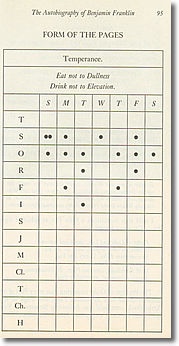 We hear about the term values constantly. From our political news to our neighborhood watch meetings. However, no one seems to acknowledge virtues. What are virtues and values? Can focusing on one make individuals better people and in doing so create a more unified and communal world?
We hear about the term values constantly. From our political news to our neighborhood watch meetings. However, no one seems to acknowledge virtues. What are virtues and values? Can focusing on one make individuals better people and in doing so create a more unified and communal world?
I prefer to define the terms we utilize in order to impart clarity on the reader as well as myself. Defining words and understanding context are vital components to any discussion.
As defined by Google Dictionary:
Values: a person’s principles or standards of behavior; one’s judgment of what is important in life.
Virtues: behavior showing high moral standards
A quality considered morally good or desirable in a person
In 1726, 20 year old Benjamin Franklin set out to write a list of Thirteen Virtues in his autobiography. He attempted to live out those virtues daily and weed out the behaviors and characteristics he considered disagreeable and unacceptable.
 His list is as follows:
His list is as follows:
- Temperance. Eat not to dullness; drink not to elevation.
- Silence. Speak not but what may benefit others or yourself; avoid trifling conversation.
- Order. Let all your things have their places; let each part of your business have its time.
- Resolution. Resolve to perform what you ought; perform without fail what you resolve.
- Frugality. Make no expense but to do good to others or yourself; i.e., waste nothing.
- Industry. Lose no time; be always employ’d in something useful; cut off all unnecessary actions.
- Sincerity. Use no hurtful deceit; think innocently and justly, and, if you speak, speak accordingly.
- Justice. Wrong none by doing injuries, or omitting the benefits that are your duty.
- Moderation. Avoid extremes; forbear resenting injuries so much as you think they deserve.
- Cleanliness. Tolerate no uncleanliness in body, cloaths, or habitation.
- Tranquillity. Be not disturbed at trifles, or at accidents common or unavoidable.
- Chastity. Rarely use venery but for health or offspring, never to dullness, weakness, or the injury of your own or another’s peace or reputation.
- Humility. Imitate Jesus and Socrates.
He soon realized that this effort at perfection was futile, but should still be practiced. One of our Founding Fathers upheld virtue and perhaps we should do the same.
Values are personal to you and me. What do we as individuals desire and want out of life. It tends to be subjective.
Virtues by contrast tend to be more communal and universal. Virtues appeal to our better nature. Humility, diligence, sincerity, selflessness, etc. These are the characteristics that should be cherished and placed at the core of our public discourse, political world, and society at large.
Kevin Ryan, director of the Center for the Advancement of Ethics and Character at Boston University states that, “Good character demands more from us than an intellectual commitment, heartfelt desire, or mechanical fulfillment of responsibilities. It requires virtues, those habits of the head, heart, and hand that enable us to know the good, love the good, and do the good.”
Values vs. virtues. Personal vs. universal. I believe that our society would fare better if led by virtues. Those traits which challenge us to be and do good. Let us follow the teachings of Aristotle, Plato, Machiavelli, Jesus, Buddha, Muhammad, MLK, and Ghandi. Let us challenge ourselves to be virtuous and create a better world.
References:
http://www.thirteen virtues.com/
https://mobile.edweek.org/c.jsp?cid=25919971&bcid=25919971&rssid=25919961&item=http%3A%2F%2Fapi.edweek.org%2Fv1%2Few%2F%3Fuuid%3D6DF4011A-2FB7-11DB-BD55-CC2980C3ACA9
